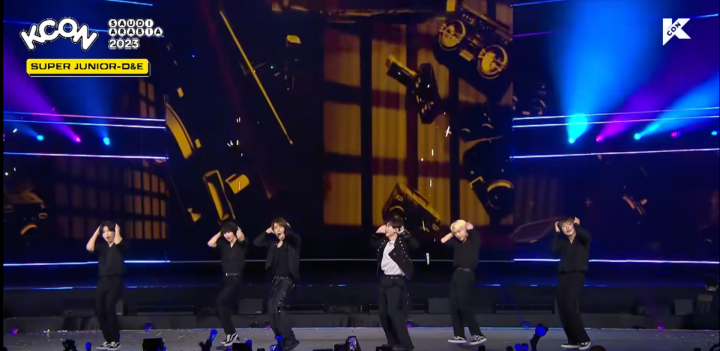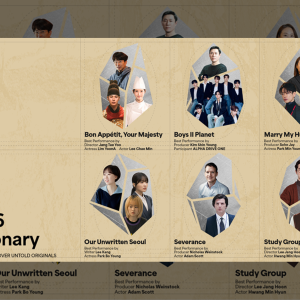K-content popularized loanwords like “hallyu,” “fighting” and “aegyo”
In an earlier feature, the CJ Newsroom looked at food-related vocabulary words that had migrated into English from Korean and eventually made it into the Oxford English Dictionary (OED). Today we consider a few more words that rode in on the Korean wave.
Many are now familiar with the terms “oppa” or “unni” (“eonni” under the Korean government’s official romanization system) even if they are not K-pop fans. Widely shared social media videos show K-pop stars acting shy after showing “aegyo” for the camera. And “Fighting!” is now a popular way to cheer someone on or show encouragement and support. Words born out of Korean culture will undoubtedly gain a greater presence in English and other languages in the years to come.
So, how many of these words do you know?
Top K-Culture Vocab: Hallyu Leads Influx of Korean Words Into English
– Aegyo (noun & adjective): This refers to cutesy behaviors like pouting, speaking in a high voice, or using stereotypically “girlie” gestures and facial expressions to make oneself seem naive and harmless.
Aegyo holds significant value in Korean culture, particularly within relationships and social contexts. Often considered a charming and desirable trait, it serves as a means to convey affection, attract attention, or infuse cheerfulness into interactions. People, regardless of gender, often employ aegyo to garner favors, express needs, or communicate emotions in a charming and endearing way.
In the tvN drama “Touch Your Heart,” Kwon Jung-rok (Lee Dong-wook) shows aegyo to his girlfriend Oh Jin-shim (Yoo In-na) while playing a form of Jenga in which the Jenga blocks have instructions to follow.
Example: “Show aegyo.” (Jin-shim, reading the line from a Jenga block for Jung-rok to act out.)
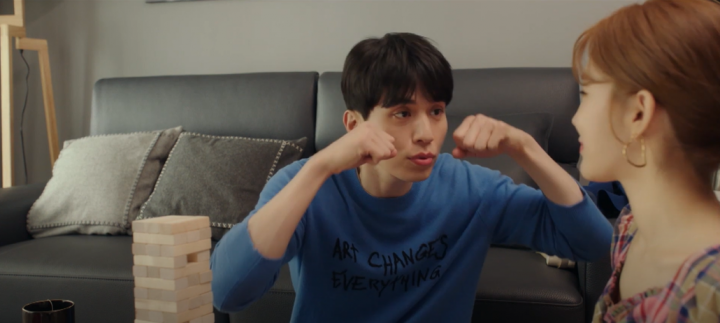
– Daebak (noun, interjection & adjective): A way of saying something is really great or excellent. Sometimes it’s used to express surprise or admiration, as in “Wow!” “Cool!” or “Awesome!” It’s a versatile word that can convey a sense of awe or astonishment, or simply signify that something is amazing or fantastic.
Its usage extends beyond just describing success or achievement. It’s often employed in everyday conversations to express enthusiasm or to describe something that exceeds expectations.
Example: “What Made tvN’s ‘Queen of Tears’ So Daebak” (A headline in The Chosun Ilbo, Korea’s biggest daily newspaper)
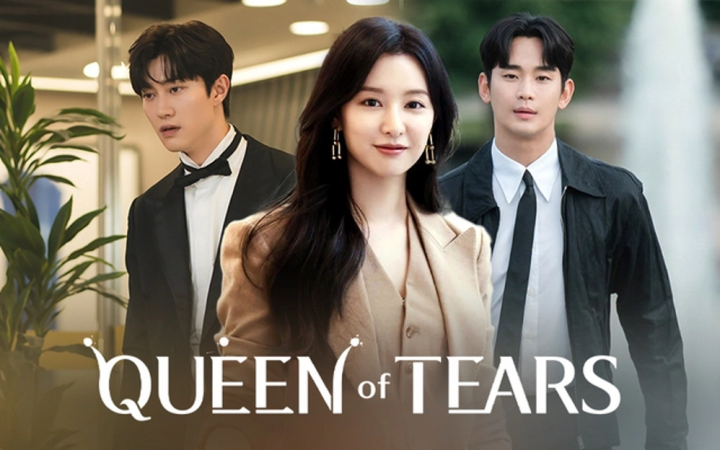
– Fighting (interjection): An expression used to cheer someone on or boost their morale, often said with one’s fist in the air. Rather than physical fighting, it refers to a “fighting spirit.”
“Fighting” first became popular in Korea as a sports cheer during the 2002 World Cup. In 2023, the K-pop song “Fighting” became a huge hit for SEVENTEEN subunit BSS — not just in Korea but in the United States too.
Example: “Fighting!” (Said by the cast of “What’s Wrong With Secretary Kim” during a group photo after a rehearsal.)
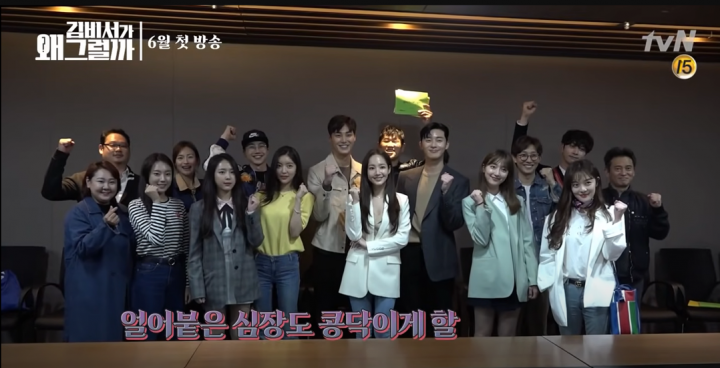
– Hallyu (noun): An intense fascination with all things Korean, including but not limited to K-pop, drama, food and more. Dating back to the late 1990s in other Asian countries, the Korean wave, or hallyu, eventually spread worldwide. More than two decades on, it’s still going strong and has even inspired art exhibitions as far away as London and Boston.
Example: “Local audiences can enjoy a wider range of hallyu content (at KCON).”
(From a CJ ENM Global Newsroom report about the KCON festival.)

– Noona, oppa, unni (nouns): Older sister (male speaker), older brother (female speaker), older sister (female speaker). The Korean words for “older brother” and “older sister” are terms of respect that reflect hierarchies within the family. Boys respectfully call their older sisters “noona” (also spelled “nuna”), while girls call their older brothers “oppa” and their older sisters “unni.”
These terms can also be used between people outside of family groups to express respect, affection and kinship. They reflect the importance of age and hierarchy in Korean society, where age is often considered a significant factor in social interactions and relationships.
Example: “Once I’ve risen, yell, ‘Oppa, oppa!’” (A line from the Super Junior song “Oppa, oppa.”)
